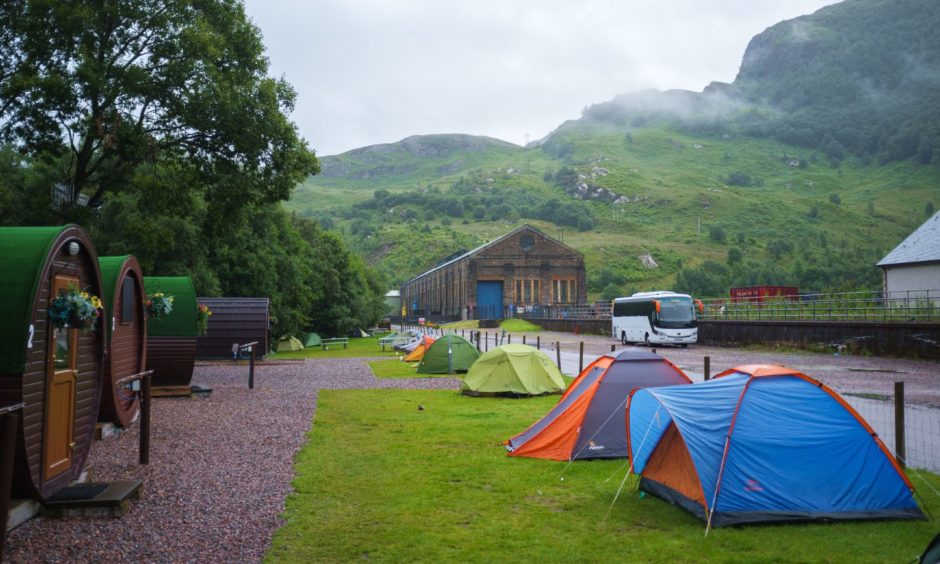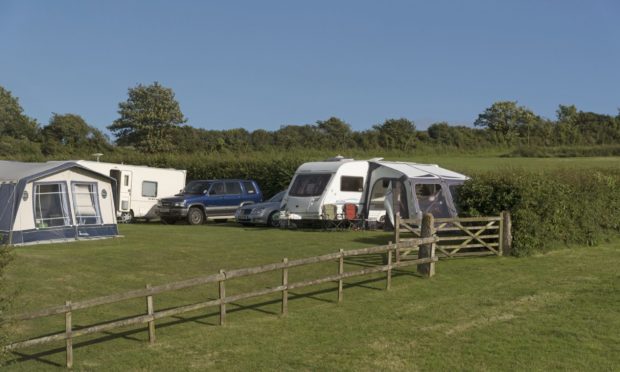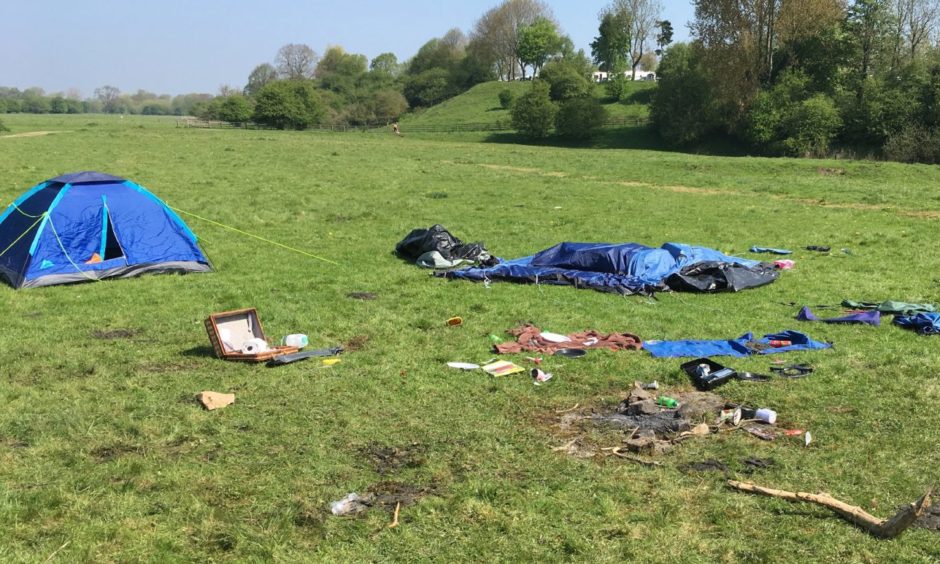Scottish farmers and landowners have offered to help mitigate the impact of dirty camping if planners allow them to develop temporary on-farm campsites.
NFU Scotland (NFUS) and Scottish Land & Estates (SLE) have written to John McNairney, the chief planner at the Scottish Government, appealing for an extension to permitted development rights (PDR) – the planning controls which were relaxed during lockdown.
The extension meant a land managers and farmers could use land for non-agricultural purposes for more than the statutory 28 days, and the agencies say that an extension to that policy would mean rural Scotland could curb dirty camping and mean more people could benefit from more staycations.
They want the Scottish Government to follow the example set in England and Wales where PDRs have been extended to 56 days until the end of the year, to allow land businesses the opportunity to diversify during difficult times.
NFUS head of policy, Gemma Cooper praised the multi-agency approach to the problems farmers and landowners have faced this year.
She added: “What we need now, is to underpin this with practical actions that will further allow them to work to mitigate the issues they are experiencing.
“The relaxation proposed by SLE and NFUS ahead of summer is timely and it is our hope that the chief planner can work with us in this regard.”

SLE policy adviser Gavin Mowat said dirty camping was more than just an eyesore.
“It can have serious social, economic and environmental implications,” he said.
“During the pandemic land managers and farmers have been able to ameliorate the impacts of dirty camping by setting aside parts of their holdings to allow for visitors to camp safely and in a way that respects nature.
“In doing so they have provided a service for those looking to take a staycation and brought in much needed capital to the rural economy.
“By extending permitted development rights to 56 days until the end of the year the Government can offer much needed certainty and security. Without this extension, there is a concern that the policy of non-enforcement could end abruptly and have serious repercussions for our members ability to plan for a busy summer period.”

